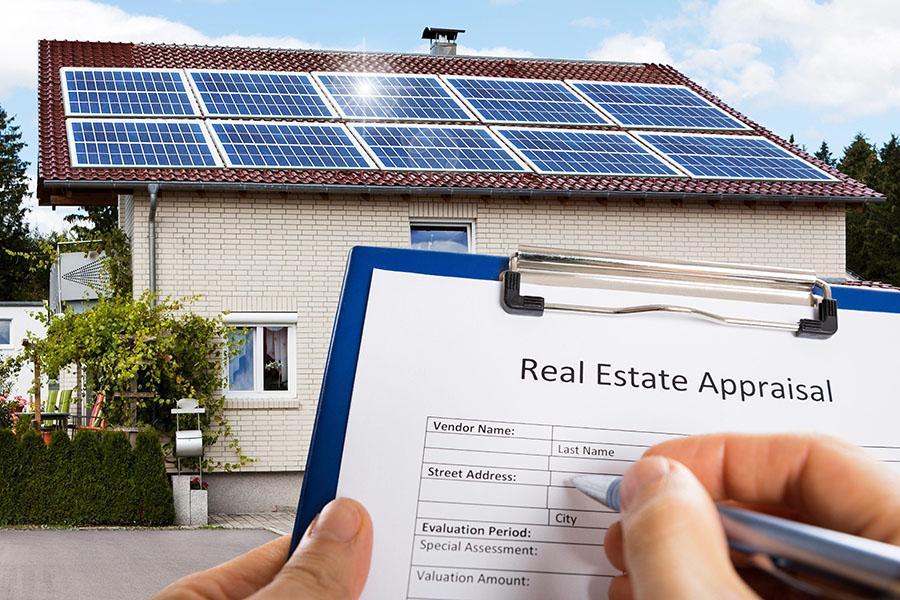Aug 1, 2022
New Bill Introduced to Value Energy Efficiency in Home Appraisals
Last week, U.S. Rep. Ed Perlmutter (CO-07) and Senator Michael Bennet (D-CO) introduced legislation in the U.S. House and Senate to encourage energy efficient and renewable features to be considered as part of the residential homebuying and appraisal process.
By: Tanner Butler

Last week, U.S. Rep. Ed Perlmutter (CO-07) and Senator Michael Bennet (D-CO) introduced legislation in the U.S. House and Senate to encourage energy efficient and renewable features to be considered as part of the residential homebuying and appraisal process. The Getting Renewable and Energy Efficient Neighborhoods (GREEN) Appraisals Act is aimed at ensuring home appraisals accurately reflect the value of renewable and energy efficient features of a property.
Specifically, the proposed energy appraisal will take into consideration:
- the energy efficiency characteristics of the property,
- any renewable energy-related features,
- estimated energy savings,
- the energy consumption for the property compared to similar properties, and
- whether such characteristics are relevant to the market value of the property.
The bill would also help standardize the value of energy efficient features across the housing market, encourage green, sustainable building practices, and support green jobs in the housing industry. Additionally, it would require training for appraisers in order for them to qualify to provide accurate green appraisal reports.
The GREEN Appraisals Act is supported by the American Society of Appraisers, Building Performance Association, E4TheFuture, National Consumer Law Center (on behalf of its low-income clients), and Pearl Certification.
The Building Performance Association’s CEO Steve Skodak weighed in: “This bill proposes an important forward-looking approach in promoting home energy performance, improving weatherization, and reducing emissions, especially as residential energy accounts for roughly 20% of our national greenhouse gases.”
Robin LeBaron, President and Co-Founder of Pearl Certification, said: “The GREEN Appraisals Act is a critical step in the right direction that will allow homeowners to capture the value of energy efficiency upgrades. From the outside of a home, it is impossible to tell if it is net-zero. This bill will provide the tools to make sure home appraisal prices are more accurate in including even those aspects we cannot see, as well as empowering homeowners to think beyond simply upgrading their countertops or floors when looking to sell.”
The bill also directs Federal Housing Administration (FHA), Federal Housing Finance Agency (FHFA), and the Department of Veteran Affairs (VA) to require lenders, when making the disclosures under the Real Estate Settlement Procedures Act (RESPA), to notify home loan borrowers they have a right to request an energy report as well as a right to provide an energy report to the lender or a qualified appraiser which must take the energy report into consideration when developing an opinion of value for a home.
The bill is an updated version of Section 4 of the Green Neighborhoods Act of 2021, introduced in June 2021 to encourage greater energy efficiency and sustainability in the nation’s housing supply while creating new jobs in the green economy.
“We applaud Rep. Perlmutter for his leadership in working to fix this issue with home appraisals that will ultimately advance our national efforts in decarbonization and building innovation,” said Skodak.





